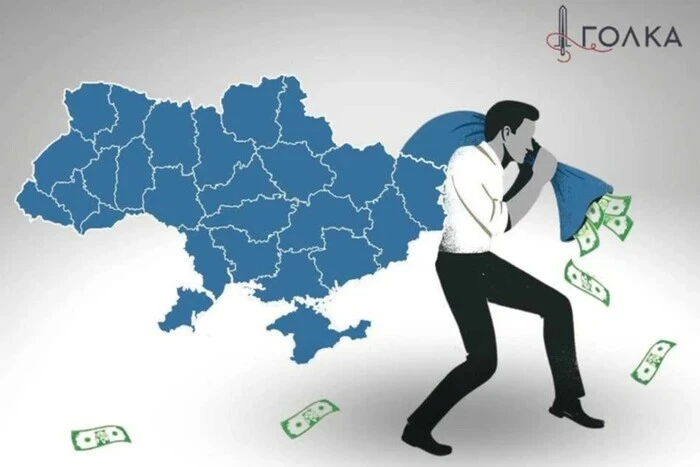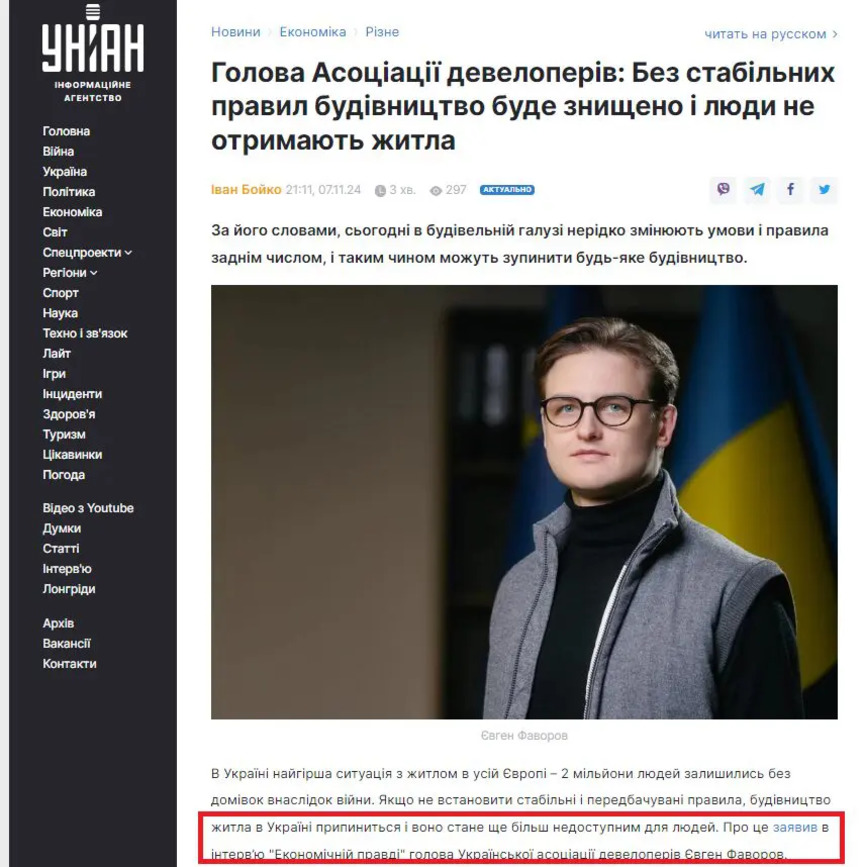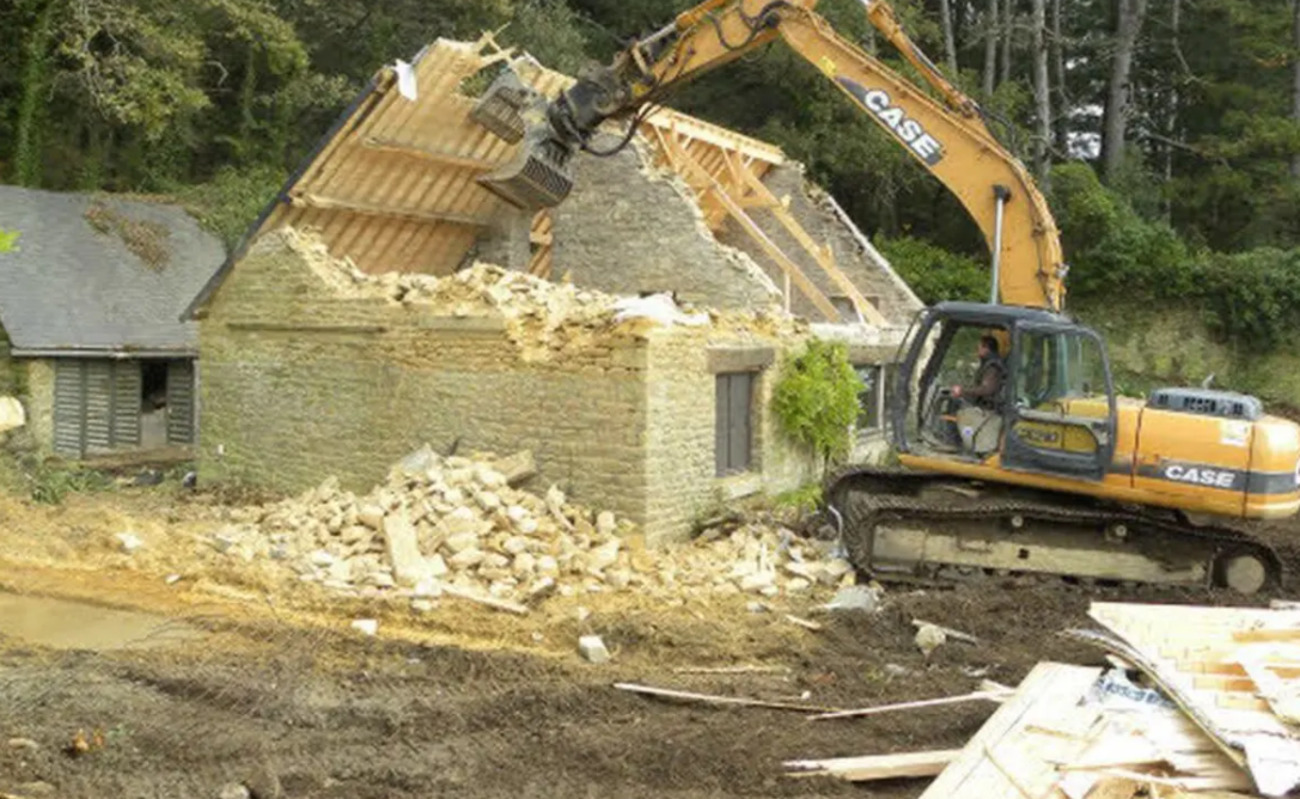In the name of Mazepa! Amnesty for the carve-outs and market compensation. What did the Environmental Committee in the Parliament decide?

What the legislative initiative, signed by dozens of people's deputies, provides
On November 7, a meeting of the Environmental Committee discussed the scandalous draft law (12089) by MP Ihor Fris (Servant of the People) and several dozen other MPs. The legislative initiative, if adopted, will allow the state or communities to return the sold-off forest or coastal areas only within 10 years. And even if they manage to do so, the person from whom they are taken away must receive market (!) compensation for the value of the property from the budget, although the developer could get it for a pittance.
The author of the draft law, Ihor Fris (Servant of the People), informed the committee members that this initiative came about after the so-called case of Ihor Mazepa, a business partner of the former mayor of Irpin, Volodymyr Karpliuk, and a subject of a number of journalistic anti-corruption investigations. The State Bureau of Investigation of land fraud accuses Mazepa himself. In the spring, the businessman launched a media campaign to «zero out» claims against people like him, and several draft laws immediately followed, analyzed by the Holka civic initiative (11134, 11233, 11185). Now, a new media wave has begun.
Notably, a week before the Verkhovna Rada Environmental Committee meeting, where the new draft law was to be considered, a number of materials, evident as the pre-paid and ordered articles, appeared in the media.
On the day of the committee meeting, Ekonomichna Pravda also published an interview in which activists, in particular those defending Flowers of Ukraine and the Zelensky estate, were devalued. However, the material was taken down after a critical post on Facebook by activist Mykola Vyhovskyi. Vygovsky said that the editorial staff had communicated the appearance of the detailed interview on the website as a mistake by a new employee. However, a number of media outlets have already disseminated this content with reference to Ekonomichna Pravda, and the materials are still available to readers – UNIAN and other media outlets that can perceive it as verified information.

During the committee meeting, MP Ihor Fris explained how the three projects were worked on:
«This case of Mazepa became the basis for the entrepreneurs' appeal. When a person acquires property under a contract and is a proper purchaser after a period of sometimes twenty years, the prosecutor's office files different types of lawsuits (vindication and negation). The courts then terminate the property right. Before that, there were three legislative initiatives. They all had the same approach, and the legal committee decided to create a working group to create one draft. It included MPs, the Bar Association, representatives of the notary, and distinguished judges from different panels of the Supreme Court. You have the result today».
The Ministry of Environment did not submit any comments to the committee, but Deputy Minister Olena Kramarenko attended the committee meeting and personally emphasized the risks that government officials see:
«We may lose a number of forestry and water fund lands. Currently, the process of registration of rights to land plots by state forestry enterprises is still ongoing. Only 85% of the 6.5 hectares of the Forests of Ukraine have been formalized. There are still many court cases. This area is only being regulated; not all forest management materials are included in the state register, so the forest fund lands are not protected from manipulation. We already have more than a thousand court cases on the return of illegally seized land plots. Therefore, in order to maintain the balance of interests of the state and bona fide acquirers of land rights, the Ministry of Ecology insists on supplementing the list of objects not covered by the proposed amendments with «objects located on forestry lands and water fund lands, hydraulic structures».
A representative of the State Agency of Forest Resources of Ukraine said that he supported the Ministry of Ecology’s position and noted that they were against the draft law being applied to Ukraine’s forest fund.
Kramarenko also emphasized the risks that will arise in relation to coastal zones.
Yulia Ovchynnykova (Servant of the People), a member of the Environmental Committee, also expressed her reservations:
«It was a very good point, the main scientific and expert department emphasized the risks. We have territories that are protected by law and cannot be transferred to private ownership. A person who has a plot of land in the forest cannot be a bona fide purchaser a priori. And this draft law runs the risk of granting them amnesty. Limiting the statute of limitations is absolutely unacceptable. This is the legalization of carve-ups. The court practice shows that they turned a blind eye to the carve-up of forests and coasts. We have cases where the prosecutor's office is successfully working to return such lands to state and municipal ownership. And a successful court practice has been formed».
The author of the project, Fris, noted that the working group that worked on the discussion found no reason why forests should not become someone’s property:
«The working group discussed the idea of providing for a direct restriction that they cannot belong to bona fide purchasers, but this was not reflected in the draft's text».
MP Fris adds:
«As for the risks that were voiced at the committee, I do not consider them valid because you are not reducing control over compliance with environmental legislation. The prosecutor's office will continue to be able to control forests and water resources, initiate criminal cases, and seize them based on the results of court proceedings. That is, not to follow the path of civil law when they cunningly terminate property rights. If there is a crime, there are criminal proceedings. Then, confiscate even what is built on this land. As for the market value, we need to think about it and encourage people to formalize the real value of contracts and pay the amounts specified in the sale and purchase agreements so that they do not evade taxes».
But the Office of the Prosecutor General of Ukraine disagrees with this approach:
«The criminal process lacks a mechanism for confiscating property from a bona fide purchaser. The mechanism of returning to state and municipal ownership of illegally seized property (restricted land) is provided by law only by filing claims for reclamation of such property from a bona fide purchaser or removing obstacles to the exercise of the right to use and dispose of the property. This is set forth in Articles 391, 387, and 388 of the Civil Code of Ukraine. With regard to the confiscation of property in criminal proceedings, it should be noted that this method of returning property to the state and territorial communities will not be effective. In most cases, decisions on which property is withdrawn from state or municipal ownership are made by a collegial body, making it impossible to hold a particular person criminally liable. Accordingly, confiscation of property is impossible».
Lawyer Sofia Shutyak, who is the deputy head of the Committee on Agrarian, Land and Environmental Law, said in a comment to the Holka civil initiative that such discussions are an eternal dispute between civilists and environmentalists:
«Civilists see only a resource; environmentalists see an ecosystem. If we are going to join the EU, and we are, we have to take into account the decisions of the European Court of Human Rights. These decisions emphasize that the public interest is more important than the private one. If a handful of people in power have mismanaged the people's property, it must and should be taken back into the people's ownership. Businesses definitely do not need this project. Business has money, values time, and therefore, does not get involved in such scandals. It's like the carve-up of the poor (poor because they're stupid) who came to power and need to give it to their own, but if you snatch it at the beginning of your term, maybe no one will take it back later... The comments of the Ministry of Environment are inappropriate because they don't take into account the fact that the environment is present wherever there are territories, and we're talking about any territories obtained with violations».
Oleh Lystopad, an expert on environmental protection at the ANTS National Interest Protection Network, who served in the Armed Forces and is currently demobilized due to reaching the age limit, says that the law on reforming the State Environmental Inspectorate (3091) must first be adopted:
«It has been waiting for four years, and the Mazepas and Frisians have been slowing it down with all their might while trying to dilute it as much as possible. For the ecological inspection to work properly, it needs at least 10,000 employees, certified laboratories in each region, machinery, transport, and equipment. Today, the Inspectorate employs just over a thousand people, and over a hundred more are now in the Armed Forces. We now have 6,500 recorded cases of environmental damage due to the hostilities and $71 billion in environmental damage. Therefore, first, we need to reform, let the SEI work for the number of years necessary to restore order, and let prosecutors work on environmental crimes in Russia. And then we can return to Mazepa's initiatives».
The committee meeting resulted in two proposals. The first was submitted by the chairman of the committee, Oleh Bondarenko (Servant of the People):
«We ask that this draft be considered at the discretion of the Main Committee on Legal Policy, taking into account the comments of our committee, namely, to include objects that are not covered by the provisions of this draft – forestry facilities, as well as hydraulic structures and land within the water fund».
MP Olena Kryvoruchkina (Servant of the People) emphasized that the committee could have sent the draft law for revision, which was supported by Anzhelika Labunska ( Batkivshchyna) and Yulia Ovchynnikova, but their votes would have been insufficient during the vote.
Bondarenko’s proposal gained the necessary votes and was immediately supported by MP Serhiy Shakhov, who was put on the NABU’s wanted list but is still a member of the Environmental Committee. (It is worth noting that MP Artem Dmytruk was expelled from the Law Enforcement Committee under similar circumstances after he fled.)
Next, draft law 12089 will be considered by the Legal Policy Committee, which is chaired by Denys Maslov (Servant of the People) and includes the key author of the legislative initiative, Ihor Fris.
After the meeting, members of the Environmental Committee proposed that committee members and other stakeholders be included in the working group, but Fris explained that the working group had already «fulfilled its function» and that his colleagues on the committee would now work on the project.
It should be remembered that the European Court of Human Rights also has examples of cases in which this body sided with the state that protected natural resources in cases involving coasts. For example, the case of Depal v. France concerned a Frenchman who, back in 1960, purchased a house partially located on the sea coast, which is state property. Until 1992, the applicant had permits to use this land, under which he was not entitled to compensation for the value of what was built there.
In 1986, French legislation stopped the renewal of permits for the occupation of state-owned marine land, and the applicant lost the right to this land. The authorities ruled that Depal should demolish his house without receiving compensation because, according to the permits he had received, he knew that he could not claim such compensation. The European Court upheld this position of the state.

In its ruling, the Grand Chamber of the Supreme Court pointed out that, unlike the Depal case, in Ukraine, unscrupulous purchasers of land plots of coastal protection zones receive them for free and illegally for the construction and maintenance of housing and outbuildings by decisions of the authorities and resell them further.
Moreover, in Ukraine, such construction on these lands is prohibited; they cannot be privately owned, and the right to lease them can be issued for limited purposes not related to housing construction.
This text is in Ukrainian
Iryna Fedoriv, specially for Glavcom.ua












Коментарі — 0